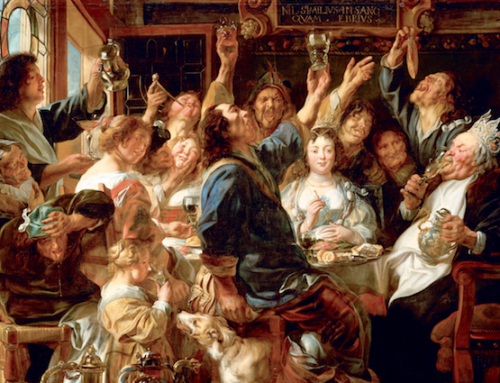 Beginning with the definition of education, Eliot relates the nature of education to culture as a whole. Specifically on culture Eliot says, “if we mean that Culture is what is passed on by our elementary and secondary schools, or by our preparatory and public schools, then we are asserting that an organ is a whole organism. For the schools can transmit only a part, and they can only transmit this part effectively, if the outside influences, not only of family and environment, but of work and play, of newsprint and spectacles and entertainment and sport, are in harmony with them.” It may be here that one should spend a great deal of time for a long pause. Why? Because this is a matter that few educational theorist have thought about when examining education. And the point is this: the relationship between education and the broader culture is so important that one of the reasons modern education receives an “F” is because the culture from which it draws its identity and reason for being receives an “F.”The end of World War II and our current moment have one thing in common when it comes to educational books. There was then, as there is now, a plethora of books putting forth various theories about education and calling for education reform. After more than sixty years of change, it seems things are more broken than ever. Few at that time, and certainly few, if any, at this time, have a sense of the history of education, let alone a rich philosophy of education. The great poet T.S. Eliot can help us considerably in this regard. In his book Notes Towards the Definition of Culture, he specifically addresses the issue of education and culture.
Beginning with the definition of education, Eliot relates the nature of education to culture as a whole. Specifically on culture Eliot says, “if we mean that Culture is what is passed on by our elementary and secondary schools, or by our preparatory and public schools, then we are asserting that an organ is a whole organism. For the schools can transmit only a part, and they can only transmit this part effectively, if the outside influences, not only of family and environment, but of work and play, of newsprint and spectacles and entertainment and sport, are in harmony with them.” It may be here that one should spend a great deal of time for a long pause. Why? Because this is a matter that few educational theorist have thought about when examining education. And the point is this: the relationship between education and the broader culture is so important that one of the reasons modern education receives an “F” is because the culture from which it draws its identity and reason for being receives an “F.”The end of World War II and our current moment have one thing in common when it comes to educational books. There was then, as there is now, a plethora of books putting forth various theories about education and calling for education reform. After more than sixty years of change, it seems things are more broken than ever. Few at that time, and certainly few, if any, at this time, have a sense of the history of education, let alone a rich philosophy of education. The great poet T.S. Eliot can help us considerably in this regard. In his book Notes Towards the Definition of Culture, he specifically addresses the issue of education and culture.
In addition to spending a good bit of time on the definition of education, T. S. Eliot also addresses the purpose of education. Now for Christendom, this is indeed a very different matter than the purpose of education for those outside of the church. Eliot says, “the purpose of education, it seems, is to transmit culture: so culture [which has not been defined] is likely to be limited to what can be transmitted by education.”
Eliot then examines the connection between education in America and the idea of democracy. Unlike others, he does not merely stand and wave the flag. He recognizes that democracy also has implications for education, possibly even pitfalls for education. Eliot also looks at education as training and happiness and how possibly education may have multiple ends and not merely one end or goal. At this point, Eliot demonstrates how some of these views within the theories of education do indeed conflict with one another.
Unlike others, especially those who have come to see education as a means to an end of happiness and wealth, Eliot does explore how education can and cannot, may or may not make one happy. It is worth noting that this essay by T. S. Eliot from his book written back in 1948 projected forward to a society where virtually everyone has “the quality of opportunity” for an education. It is here where Eliot says, “the ideal of a uniform system such that no one capable of receiving higher education could fail to get it, leads imperceptibly to the education of too many people, and consequently to the lowering of standards to whatever the swollen number of candidates is able to reach.” Read that last part again and consider how bloated the American university system is with candidates unfit for learning.
As we are able to move from 1948 to the present moment, and we are able to fast forward to now we recognize that Eliot was correct. Here it may be worth the effort to reflect on a portion of Eliot’s powerful poem, The Rock:
Where is the Life we have lost in living?
Where is the wisdom we have lost in knowledge?
Where is the knowledge we have lost in information?
Eliot could not have anticipated the age of personal computers where people get all excited about the reality of iPads for everyone from K – College seniors. One can only project into the future of the dark world that we may be making for ourselves starting now. Eliot carefully defining education for everybody says, “education for everybody is the means we must employ for putting civilization together again. Now so long as we mean by ‘education’ everything that goes to form the good individual in a good society, we are in accord, though the conclusion does not appear to get us anywhere.” Having been part of American “Higher Education” for more than twenty years, it is comical and tragic to argue that our current system works. Again, Eliot, “In our headlong rush to educate everybody, we are lowering our standards and more and more abandoning the study of those subjects by which the centrals of our culture–of that part of it which is transmissible by education–are transmitted; destroying our ancient edifices to make ready the ground upon which the barbarian nomads of the future willing encamp in their mechanised caravans.”
One has ample evidence that at least half of all getting degrees are not qualified to even begin to pursuit of that degree, and more than half of the recipients of the paper signifying that degree did not receive an education close to purchasing price. Our hope rests in Classical Christian schools and Christian colleges and universities that take their cues from the best of the past. “We know now that the highest achievements of the past, in art, in wisdom, in holiness, were but ‘stages in development’ which we can teach our springalds to improve upon.” We can do as Eliot urges in this essay or, as is likely for the bulk of our educating machine, we can continue to follow a failed system that is destined to the dust of death.
The Imaginative Conservative applies the principle of appreciation to the discussion of culture and politics—we approach dialogue with magnanimity rather than with mere civility. Will you help us remain a refreshing oasis in the increasingly contentious arena of modern discourse? Please consider donating now.







The strange thing, as an Englishman, about the rulings of the new, so called Supreme Court is the complete lack of grounding in the English tradition, constitution, and history that they appear to have.
We have an established church, which is constitutionally prior to parliament and the courts. To have the courts suggest that Christian prayer is unlawful is not just immoral and stupid, it is contrary to the basic foundations of the English polity. Those judges need to be removed from their position, they are not fit to sit as part of Her Majesty's judiciary.
Very good reading: those options are worthy of consideration by our Educational community, state by state